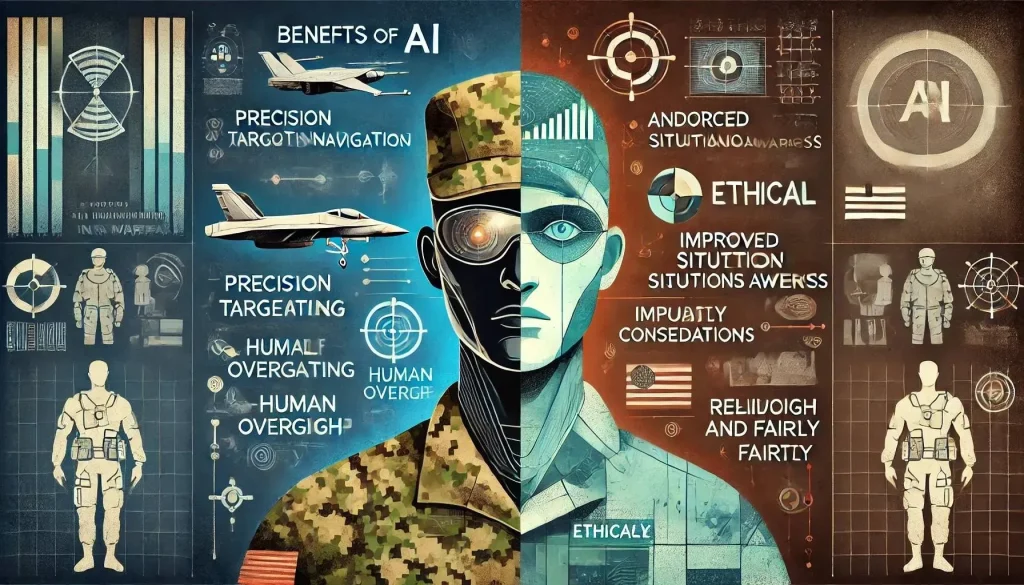AI in European defense is increasingly becoming a focal point of discussion among NATO leaders, particularly as the continent grapples with the implications of rapid advancements in military technology. With concerns about being overshadowed by U.S. AI developments and Russian military technology, Europeans are urgently reevaluating their strategies. The UK, recognizing its historical role, is ramping up its AI investments as part of a broader commitment to bolster NATO’s collective capabilities. The competition for AI superiority on future battlefields is intensifying, driving European nations to enhance their intelligence strategies. Amidst the backdrop of ongoing conflicts, such as in Ukraine, the development and integration of artificial intelligence into defense operations are viewed as critical to ensuring security and deterrence against adversaries.
The integration of artificial intelligence into military operations across Europe is gaining momentum as countries strive to adapt to new geopolitical realities. Europe’s awakening to the necessity of advanced technological capabilities signals a shift in defense priorities, especially in light of rising tensions with Russia. As European nations seek to fortify their military readiness, there is a burgeoning interest in AI-driven strategies that parallel NATO’s overarching objectives. The UK, alongside its partners, is leading various initiatives aimed at enhancing doctrinal approaches to AI development in defense. This transformation reflects a broader movement towards harnessing cutting-edge technologies to reshape the landscape of international security.
The Strategic Importance of AI in European Defense
As Europe develops its defense strategies, the integration of artificial intelligence becomes crucial in maintaining a competitive edge. The European defense forces must adopt innovative technologies to counter external threats effectively, particularly in light of recent developments in Russian military technology. Implementing advanced AI systems is not just a trend but a strategic necessity for European countries to enhance their military capabilities and intelligence operations.
Moreover, the NATO AI strategy highlights the importance of collaborative efforts among member states to converge on AI technologies. By pooling resources and expertise, Europe can enhance its own military efficiencies while simultaneously addressing the growing influence and capabilities of adversaries like Russia. This collaborative approach will ensure that European defense remains robust and agile in the face of changing warfare dynamics.
Frequently Asked Questions
How is AI being integrated into European defense strategies under the NATO AI strategy?
The NATO AI strategy emphasizes the rapid integration of artificial intelligence into military operations to enhance capabilities and deter threats, particularly from Russia. European nations are focusing on adopting AI for data processing, automated surveillance, and advanced weapon systems to remain competitive in the evolving battlefield landscape.
What challenges does Europe face in developing its AI capabilities for defense?
Europe faces several challenges in AI defense development including a lack of access to advanced data centers, limited domestic AI innovation, and the need to align various member states on regulatory frameworks. Additionally, there is concern that Europe’s defense industry may not match the rapid advancements seen in the U.S. and China.
How do UK AI investments contribute to European defense initiatives?
The UK is a leader in AI investments, ranking third globally in government funding for AI research. These investments support the integration of AI into a ‘NATO-first’ national security approach, aligning with broader European defense strategies aimed at countering threats from Russia and maintaining competitiveness in AI advancements.
What impact does Russian military technology have on AI developments in Europe?
While Russia is not viewed as an AI leader, its military technologies inform European AI development, particularly through lessons learned from the Ukrainian conflict. European nations are enhancing their defensive systems in response to Russia’s tactics, such as drone incursions and cyber warfare, which further drives AI innovation in defense.
In what ways is Europe reacting to the AI battlefield competition with the U.S. and China?
European countries are accelerating their AI adoption in military contexts, evident from NATO’s agreements with tech companies like Palantir. There’s a growing awareness of the urgency to develop AI capabilities that match those of the U.S. and China, focusing on not only defense systems but also intelligence superiority on future battlefields.
| Key Point | Details |
|---|---|
| AI and NATO | NATO leaders acknowledge the need for Europe to enhance its AI capabilities, with the UK called upon for stronger intelligence contributions. |
| US-China AI Supremacy | The US and China are leading in AI development, leaving Europe at a disadvantage in military capabilities. |
| European Defense Strategies | European nations are improving their defense systems with data collection and surveillance technologies, focusing more on deterrence against Russia. |
| Investment in AI | The UK ranks third globally in AI government funding and is integrating AI into its defense strategy emphasizing NATO cooperation. |
| Lessons from Ukraine | The conflict in Ukraine has highlighted the importance of enhancing AI capabilities in response to Russian tactics. |
| Challenges Faced by Europe | Europe struggles with insufficient access to cutting-edge AI technology and collaboration, falling behind in critical AI domains. |
Summary
AI in European defense is becoming an increasingly critical issue as European nations recognize the urgency of advancing their artificial intelligence capabilities in light of global developments. With NATO’s call for enhanced contributions and the stark competition between the US and China in the AI realm, European countries are pushed to adopt innovative technologies that can bolster their defense strategies. The need for collaboration and investment in AI is essential to ensure that Europe remains competitive and effective in its security measures against emerging threats.



